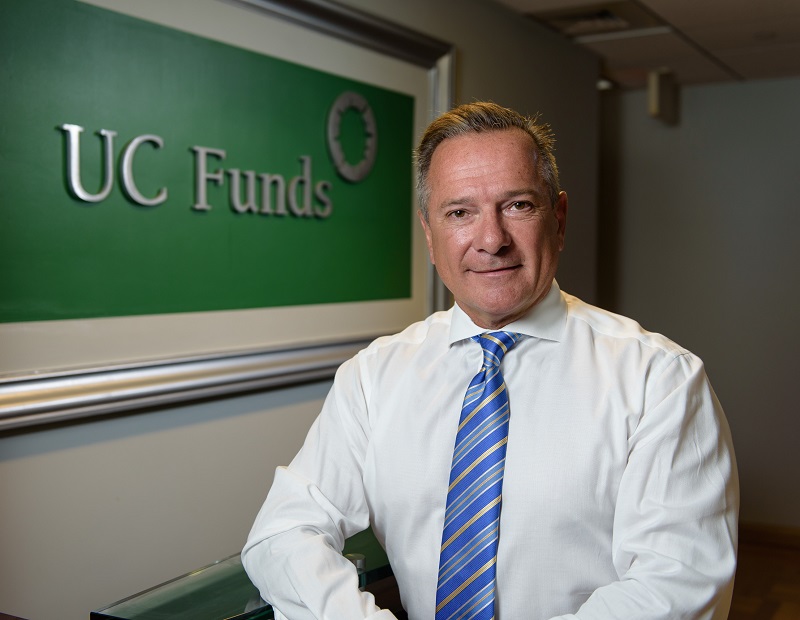UC Funds Launches New Product
In a constrained lending environment, non-traditional lenders are offering increased flexibility. Daniel Palmier, president & CEO of UC Funds, explains what factors sponsors should consider when looking for a financing partner.
By Alexandra Pacurar
Specialty finance lender UC Funds has launched UC GO, a commercial mortgage product in the hopes of offering borrowers more competitive pricing and increased flexibility in today’s lending environment. The product offers a 0.5 debt service coverage ratio, an 85 percent loan to value and a variable rate product that starts at LIBOR +375 (available for loans starting at $5 million). The program has an initial capitalization of $1 billion from UC Funds and outside institutions. Daniel Palmier, president & CEO of UC Funds, discussed with Commercial Property Executive the top trends in the current lending environment and revealed what drives institutional real estate investors to look to non-traditional lenders when it comes to financing their acquisitions or complex development projects.
CPE: Tell us about UC GO. How did this commercial mortgage product come about and why was it necessary in today’s lending environment?
Daniel Palmier: In the current market environment, commercial real estate developers and owners want the UC GO product because of its extreme pricing competitiveness, aggressive proceeds, non-recourse structure and flexibility, without the bank restrictions and contingencies.
CPE: Why is it important for a lender to be flexible in the current lending market?
Palmier: Successful real estate investments are made by having the right partners, whether it’s a contractor, leasing agent, third-party manager or lender. Markets change and having an entrepreneurial lender who can be flexible only helps ensure the success of an investment that will allow the sponsor to deal with an ever-changing world. Risk is shared by both a lender and an investor from the value side, but the biggest risk is that a lender and investor will not be able to work well together to deal with changes in the market, which ultimately puts a property into a tail spin. When that happens, the only ones who win are the attorneys.
CPE: What is the amount of risk carried by the lender in the case of competitive financing products?
Palmier: Given the competitiveness in the markets, lenders are tempted to push proceeds, lower returns and finance unproven sponsors. So far, we have seen a disciplined lending market, having learned from the market crash of 2009-2010.
CPE: How do you see the lending environment today? Are traditional lenders losing ground to some of the alternative lenders?
Palmier: Traditional lenders are still very active. However, they are only active for their key clients. They’ve shunned the middle-market developers and investors who needed to turn to non-traditional lenders to get their deals financed. As this market has grown, pricing has dropped to be on par with conventional lenders, with the added benefit of non-recourse, flexibility and quicker closing time frames. Today, even institutional real estate investors are taking the non-traditional route for financing with the added benefits and competitive capital pricing.
CPE: What is your future outlook for the capital markets?
Palmier: Sponsors always see rate and proceeds first and foremost, but there is so much more to a loan. What sponsors should be asking is: will this lender close, and if they close, will I be able to work with them for the loan term. Sponsors should be selecting lenders with outstanding track records, solid reputations and longevity like UC Funds.
A lot of new lenders entering the market will find it very challenging as they have to deal with interest rate fluctuations, market demand changes and rising cap rates. I wonder how they will treat their clients when they feel the pressure.
Image courtesy of UC Funds








You must be logged in to post a comment.